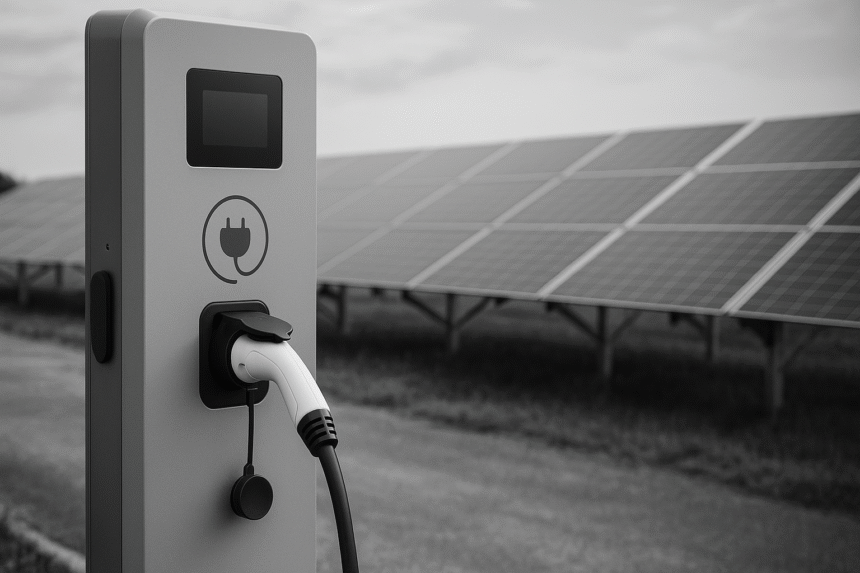How to Select the Right EV Charger Manufacturer for Government Projects
As governments across the UAE ramp up electric vehicle (EV) infrastructure, selecting the right project EV charger manufacturer has become a mission-critical decision. Whether it’s for a municipality, a utility-backed tender, or a government-led smart city initiative, the choice of manufacturer impacts everything from project delivery to long-term maintenance.
In this guide, we help CEOs, project owners, and public sector procurement heads evaluate EV charger manufacturers with clarity and confidence.
Why Manufacturer Selection Matters in Public EV Projects
Not all EV charger providers are created equal. Some companies manufacture the hardware, while others are local distributors or integrators. When working on public sector projects, this distinction matters:
- Manufacturers control the technology, R&D, and product evolution.
- Distributors handle regional sales and support but may have limited technical authority.
- System integrators install and maintain systems but often rely on third-party OEMs.
Selecting the right project EV charger manufacturer means aligning technical, operational, and financial expectations from the start.
Manufacturer vs. Distributor: Who Are You Really Contracting With?
In government procurement, clarity on who is ultimately accountable is key. Consider the following:
- Warranty Ownership: Is the warranty backed by the original equipment manufacturer (OEM) or a local reseller?
- Product Lifecycle Support: Will updates and spare parts come directly from the factory?
- Licensing & IP: Who owns the software embedded in the charger? Who has rights to update it?
A common issue in public projects is reliance on distributors who later lose agency status or stock. That’s why direct engagement with a verified manufacturer (or their exclusive partner) is preferable.
Key Technical Specifications to Review
While procurement teams often focus on price, ignoring technical specs can lead to costly mistakes. Here are minimum criteria you should evaluate:
- Charging Capacity: Choose between AC (7kW – 22kW) and DC fast chargers (50kW+)
- Plug Standards: Type 2, CCS, CHAdeMO, or multi-standard?
- Communication Protocols: OCPP compliance (1.6 / 2.0.1) for backend integration
- Safety and Certification: IEC conformity, IP rating, temperature tolerance
- Smart Features: Load management, user authentication, energy monitoring
The right project EV charger manufacturer will provide clear, up-to-date datasheets, not just a marketing brochure.
Public Tender Evaluation Checklist
Procurement teams should move beyond price-based scoring. Here’s a checklist to guide bid evaluations:
- Manufacturer Profile
- Years in EV manufacturing
- R&D investment
- Global presence / regional service capacity
- Product Offering
- Range of AC/DC chargers
- Modular design and spare parts availability
- In-house software platform or white-labeled third-party?
- Certifications & Approvals
- DEWA / Dubai Municipality approved?
- Environmental & safety certifications
- Warranty & Service
- Coverage period (hardware, software, installation)
- Service SLA terms
- Who delivers maintenance — factory team or subcontractor?
- Local Partner Strength
- Is there a local representative?
- Are they exclusive agents or one of many resellers?
Procurement Scoring: Beyond Lowest Price
In government projects, the lowest bidder is not always the best choice. Smart tenders weigh price alongside performance and post-installation reliability.
Here’s an example of balanced scoring:
- Technical Offer: 40%
- Commercial Offer: 30%
- After-Sales Plan: 15%
- Local Support Capacity: 10%
- Sustainability Compliance: 5%
This ensures that your project EV charger manufacturer can deliver real value over the full project lifecycle.
Conclusion: Think Long-Term, Not Just Procurement
When selecting an EV charger manufacturer, your decision will affect not just delivery timelines, but system uptime, government reputation, and future scalability.
Treat this as a long-term infrastructure decision — because it is.
Work with manufacturers that understand public sector procurement, have local partners with staying power, and are prepared to offer technical support long after the ribbon-cutting ceremony.



Leave a Reply